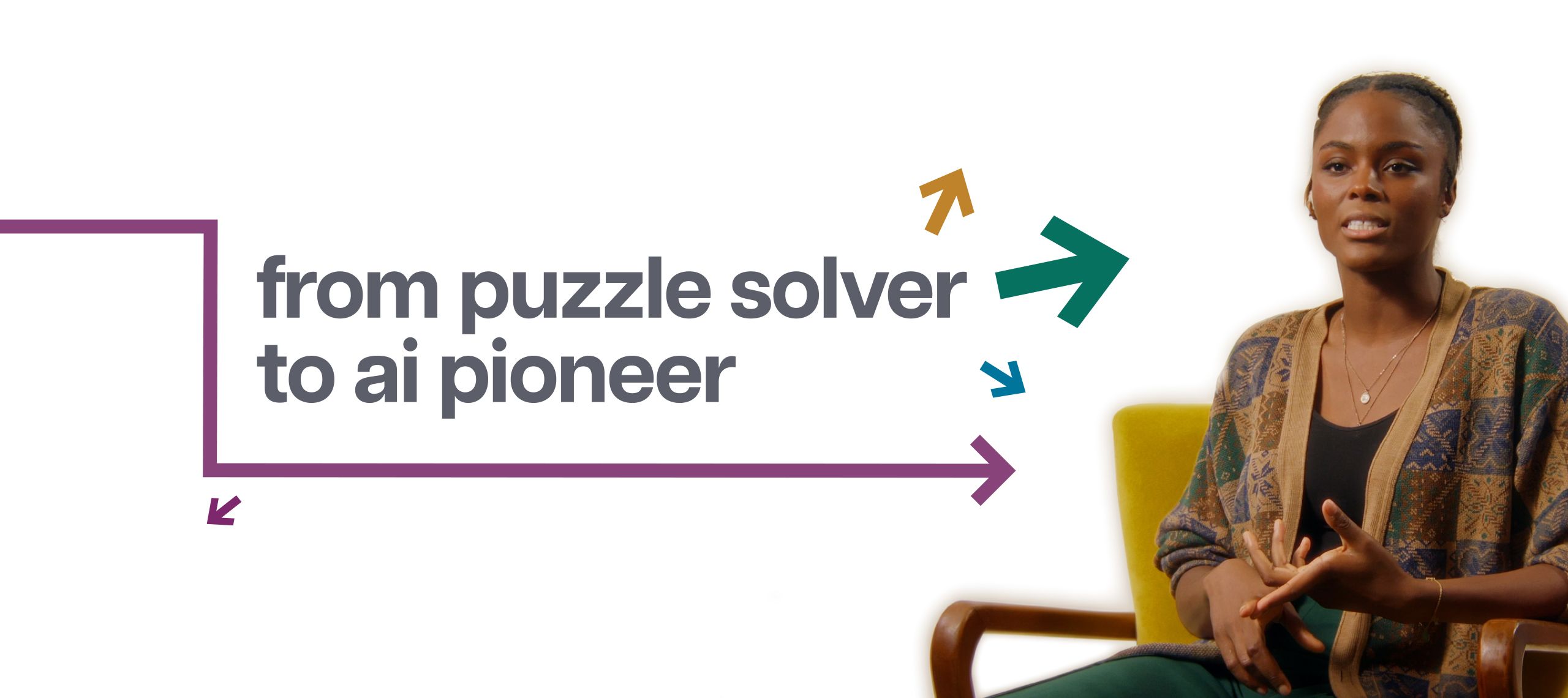
Research Journeys: From puzzle solver to AI pioneer
Health is not just the absence of disease. It is an interplay of the physical, the emotional and the social factors.
From an early age, Anna-Grace loved puzzles and problem-solving. This love turned into a fascination for unravelling and understanding the human experience.
Today, armed with cutting-edge AI technology, Anna dedicates herself to the analysis of healthcare information to build a picture of patient’s experiences. Just like a puzzle, she’s piecing this information together to help shape individualised healthcare for patients.
This Research Journey is part of a collection made with members of the 100 Black Women Professors NOW network.
Browse stories from the collection.
Transcript
[Anna is sitting in front of a white background speaking directly to camera.]
Anna: As a child, I was always captivated with figuring things out and understanding how they came together.
I recall a memory my mum shared with me of when I was little and I saw a beautiful coffee table with many pieces and shapes and I yelled, "Puzzle! Puzzle!" So my education-loving Jamaican parents embraced this and encouraged my love of problem solving, even when it was just to build their IKEA furniture and to be their personal IT guy. But unknowingly, they laid the foundations for my future journey.
So fast forward to my academic years when my love of puzzles led me to the world of neuroscience, the brain, the great enigma. I wanted to understand how this web of brain cells and systems could come together to form the human experience and behaviours.
So I wish I could say that studying neuroscience was part of my bigger plan. But it wasn't. When I graduated, I thought I was done with academia. I got a job, you know, try something new, try something different. But actually, on this job, I was working with healthcare data and I saw how a person navigating the healthcare system leaves drops of information. And actually, by bringing together this disjointed information, you get a clear understanding of that patient and the care that's appropriate for them.
So I chose to do a PhD looking at the information that these patients provide about their health and the things that affect it. Using artificial intelligence, or AI, I can look at the comments that cancer patients provide in certain questionnaires following their diagnosis and treatment.
These comments are important to unlocking our understanding about what it is that patients think about their health and what it is that affects them. It reveals things such as their emotional struggles, you know, "Oh, I fear my wife's reaction if the cancer came back." It also reveals things such as their coping mechanisms. "My friends and family is what got me through the last leg of treatment." But it even reveals their interactions with the healthcare system. "It was the care at so-and-so hospital that got me up and about in no time."
These different comments come together to form a mosaic of the patient healthcare experience and all the things that are important to them. Healthcare is often looked at through a narrow lens looking at clinically reported data and treatment plans. But health is not just the absence of disease. It is an interplay of the physical, the emotional, and the social factors. And by analysing these patient comments, we can transform care by enhancing the patient voice and tailoring their care to what truly matters.
Excitingly, I get to use cutting-edge AI technology. And just as my childhood puzzle pieces could come together, so does my research. It's all about uncovering the hidden pieces and putting together to reveal the bigger picture.